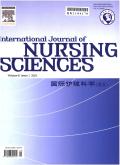Cross-cultural adaptation and psychometric evaluation of the Thai version of the Enhancing Recovery in Coronary Heart Disease Social Support Inventory in individuals with chronic illnesses
IF 3.1
3区 医学
Q1 NURSING
引用次数: 0
Abstract
Objectives
This study aimed to translate and psychometrically test the 7-item Enhancing Recovery in Coronary Heart Disease (ENRICHD) Social Support Inventory (ESSI) scale within the Thai population.
Methods
A scale translation and cross-sectional validation study was conducted. The English version was translated for Thai involved nine steps: preparation, forward translation, reconciliation, back-translation, back-translation review, harmonization, cognitive debriefing, review of cognitive debriefing and finalization, and proofreading. Psychometrics testing used data from a cross-sectional study from July to November 2022 at 16 primary care centers in southern Thailand, involving 405 participants. Structural validity was tested with exploratory and confirmatory factor analysis (EFA and CFA). Hypothesis testing validity was assessed through correlations with the Self-Care Self-Efficacy Scale version 3.0 (SCSES-v3.0) and the Self-Care of Chronic Illness Inventory version 4.c (SC-CII-v4.c). Reliability was evaluated using Cronbach’s α coefficient and the intraclass correlation coefficient.
Results
The Thai ESSI demonstrated excellent content validity. EFA revealed a one-factor structure, with high factor loadings for the first six items assessing informational, emotional, and instrumental support. The last item on structural support demonstrated inadequate factor loadings, suggesting its removal. CFA confirmed a well-fit one-factor structure for the 6-item ESSI. Hypothesis testing showed positive correlations with the SCSES-v3.0 and SC-CII-v4.c scales. Cronbach’s α coefficient improved from 0.88 for the 7-item to 0.91 for the 6-item ESSI. Both the 7-item and the 6-item scales exhibited excellent test-retest reliability.
Conclusions
Our study affirms the strong validity and reliability of the ESSI in the Thai population with chronic illnesses. The ESSI is deemed appropriate for evaluating social support in the context of chronic illness self-care.
泰国版冠心病社会支持量表促进慢性疾病患者康复的跨文化适应和心理测量学评价
目的本研究旨在翻译和心理计量学测试泰国人群中7项冠心病增强恢复(浓缩)社会支持量表(ESSI)。方法进行量表翻译和横断面验证研究。英文翻译为泰语涉及九个步骤:准备、前译、协调、反译、反译审查、协调、认知述职、认知述职审查和定稿、校对。心理测量学测试使用了2022年7月至11月在泰国南部16个初级保健中心进行的横断面研究的数据,涉及405名参与者。采用探索性因子分析(EFA)和验证性因子分析(CFA)检验结构效度。通过与自我护理自我效能量表3.0版(SCSES-v3.0)和慢性病自我护理量表4.c版(SC-CII-v4.c)的相关性来评估假设检验效度。采用Cronbach’s α系数和类内相关系数评价信度。结果泰国ESSI量表具有良好的内容效度。全民教育显示了一个单因素结构,在评估信息、情感和工具支持的前六个项目中,因子负荷很高。关于结构支撑的最后一项显示因子载荷不足,建议将其删除。CFA证实了6项ESSI的单因素结构非常合适。假设检验表明,SCSES-v3.0和SC-CII-v4.c量表与SCSES-v3.0和SC-CII-v4.c量表呈正相关。Cronbach’s α系数从7项的0.88提高到6项的0.91。7项量表和6项量表均表现出极好的重测信度。结论我们的研究证实了ESSI在泰国慢性疾病人群中具有很强的效度和可靠性。ESSI被认为适合于评估慢性疾病自我护理背景下的社会支持。
本文章由计算机程序翻译,如有差异,请以英文原文为准。
求助全文
约1分钟内获得全文
求助全文
来源期刊

International Journal of Nursing Sciences
Nursing-Nursing (all)
CiteScore
6.10
自引率
2.60%
发文量
408
审稿时长
25 days
期刊介绍:
This journal aims to promote excellence in nursing and health care through the dissemination of the latest, evidence-based, peer-reviewed clinical information and original research, providing an international platform for exchanging knowledge, research findings and nursing practice experience. This journal covers a wide range of nursing topics such as advanced nursing practice, bio-psychosocial issues related to health, cultural perspectives, lifestyle change as a component of health promotion, chronic disease, including end-of-life care, family care giving. IJNSS publishes four issues per year in Jan/Apr/Jul/Oct. IJNSS intended readership includes practicing nurses in all spheres and at all levels who are committed to advancing practice and professional development on the basis of new knowledge and evidence; managers and senior members of the nursing; nurse educators and nursing students etc. IJNSS seeks to enrich insight into clinical need and the implications for nursing intervention and models of service delivery. Contributions are welcomed from other health professions on issues that have a direct impact on nursing practice.
 求助内容:
求助内容: 应助结果提醒方式:
应助结果提醒方式:


